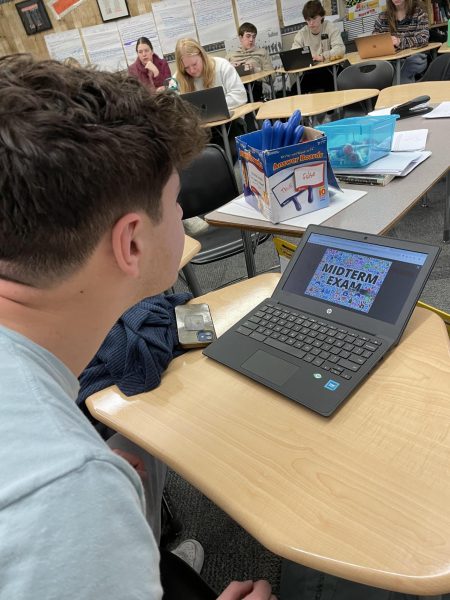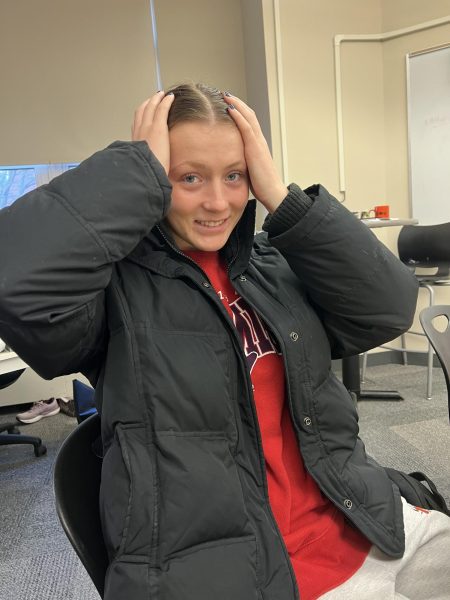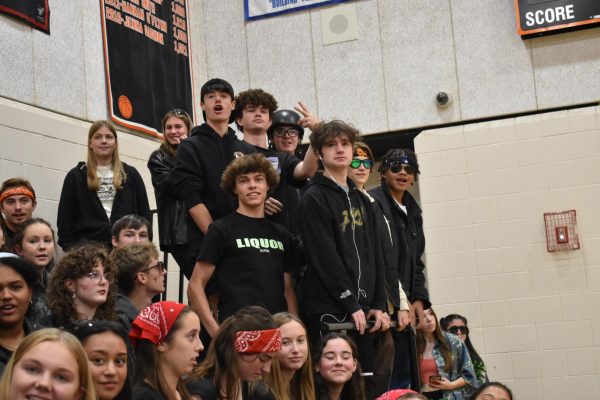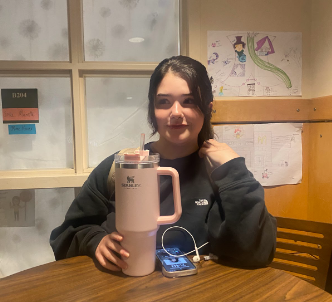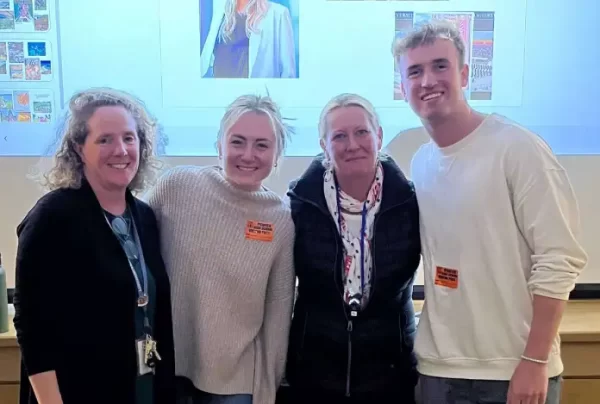Perseverance in the Face of Advisory: A Return to Learn
January 7, 2021
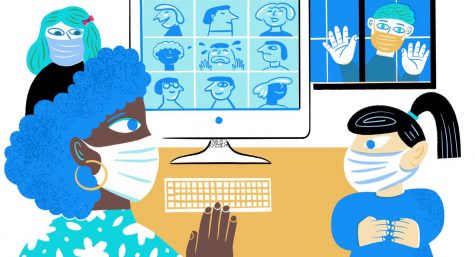
Throughout the last calendar year COVID-19 has forced people to adapt and change to survive. We’ve found ourselves wearing masks, social distancing and closing about everything as a result. As society has slowly come back out of hiding and the world is opened up once again, we’ve needed to make changes to every part of life, apart from living itself basically. One major societal change that we go through every day is school. We no longer attend every day, the schedule has been changed drastically, and paper work seems to be a thing of the past. Everyone involved in the schooling system has needed to adjust; teachers and students have very different daily tasks and challenges, despite being in the same system. The perspective of students and teachers are vastly different than ever before.
As a student myself, I’ve found this year to be easier than years past in more ways than not; however, I’ve faced new challenges that have caused their own stress. I’ve found that as long as I pay attention to what is assigned I do well for nearly all of my assignments. Although I complete these assignments without being stuck usually; tests and quizzes have never felt harder. I feel that studying is harder than ever before because I prefer to study on paper copies and I usually don’t think to print out my work. These issues with tests and quizzes can easily be fixed though, and will be with more experience. On the other hand, when I’m online I’ve felt less engaged, and it’s been a lot harder to maintain focus, but I remember what’s necessary most of the time. Similarly, in the AP seminar classes that only meet on Wednesdays, I’ve found it very difficult to stay focused and on task. Despite this, I’ve been able to keep my grades up and do well, and I believe other students are as well. When I talked with Mrs. Panciera, she mentioned how her AP literature class has been doing “exceptionally well” and she’s found that “it’s a gift” when students participate without being asked. It seems to her that AP seminars have been successful in bringing the best out of students, and I agree with that. As a whole, I’ve found hybrid methods easier because all my work is right in front of me and I can get it done. However, some students are struggling more than normal and are having trouble staying focused grades. Their grades are dropping as a result. While some are doing exceptionally well currently, others are doing worse than ever. The new method, hybrid, has affected everyone differently, with most people falling one of two extremes: thriving or failing.
In addition, I interviewed Wes Lathrop to get another student’s perspective on the year. His beliefs aligned with mine I quickly found out. He said that the year was “easier” and his “grades are better” than usual. He attributed this to his work ethic, as he “always make[s] sure homework and assignments are done” everyday. One strategy that helped him was he “checks the google classroom app every night” at a set time to make sure everything is complete. I thought this was a great idea and even started doing it myself. Another similarity in our feelings towards online school is that we both “feel less engaged” and “it’s much more difficult to stay focused on the material.” Wes also pointed out how doing work can be a lot harder sometimes because there’s a lack of direction from teachers. He suggested that “teachers have a really hard time planning too I’m sure,” but maintained that sometimes he gets “an assignment and waits ten minutes before someone reads the chat.” I agreed with him because most of the time time I’ve felt lost this year I’ve had to go to other students or the internet to answer my questions. However, we both realize along with other students that this is new to teachers as well and it should be expected. Wes even said that “giving directions is probably much harder this year” and again I agreed. At the end of the interview I asked him about how he felt the teachers were doing in holding up their end. He believed that “even though it’s hard for us sometimes, it’s hard for them too”. To sum up, it seems like some aspects of school are harder and others easier, and again the two extremes seem to be what’s going on.
Finally, I had to get a different perspective on everything, so I interviewed Mrs. Smith about the teachers’ side of things. I also interviewed Mrs. Panciera, but that was about AP seminars. To start with Mrs. Panciera described how she “misses the live component” of teaching and misses seeing students. She said seeing a student that she only teaches during seminars is like a “celebrity sighting.” What she’s come to understand about seminars thus far is that they are successful. In her classes that are “mainly discussion” like AP literature in which you discuss books the class is reading, “students are really engaged and keep the discussion going.” I’ve found similar results in my AP seminars, so it seems that they have been more than successful for teachers. On the contrary, Mrs. Smith talked about the hybrid way of teaching. She spoke of “teaching [being] harder than ever and a lot more work,” and that “kids are much quieter, less engaged and it’s hard to get to know them.” One way she’s been able to plan out the year successfully is through “planbook.com.” It is “extremely helpful” and “lists all the information needed right in front of you for that day.” She even showed me the layout, and it looked very organized and helpful. I asked Mrs. Smith about students’ grades, and my theory about the two extremes was true. Mrs. Smith talked about how “students are either doing much better or worse.” She continued, “The students who usually do their work are doing better than normal, and the students who usually don’t are doing worse than before.” Sadly for teachers, planning for the year has gotten no easier according to Mrs. Smith. “The technology is easier to use, but planning is just as hard,” she replied when I asked if all teachers had adjusted to hybrid teaching. New challenges and changes seem to come up almost daily now, so planning won’t be getting any easier. A successful way of teaching for discussion is Parlay. Mrs. Smith uses this to see who’s spoken during a discussion and it lets students see who’s going to talk next. Apparently, “it’s difficult to set up, but worth it” and is a very good alternative to in-person discussions with everyone. My final questions for Mrs. Smith related to student integrity. She doesn’t know if any is lost because of being online, but cheating is definitely easier. However, “catching is easier too, and not many students realize that.” In the end, she believes online is much worse for student integrity, but not as bad as people think.
Overall, it seems that for students they are two extremes: passing and failing. If you’re a good student and do work as it’s assigned you shouldn’t have any problems and you’ll pass. On the other hand, if you prefer to try to find loopholes out of work or just don’t do it at all you’ll fail. Teachers know this, and as they plan to give students the best chance at success they have their own struggles and challenges in the way. We all have to persevere through these hard times. Everyone has their own issues and problems because of the pandemic, but we all have found ways to succeed.


